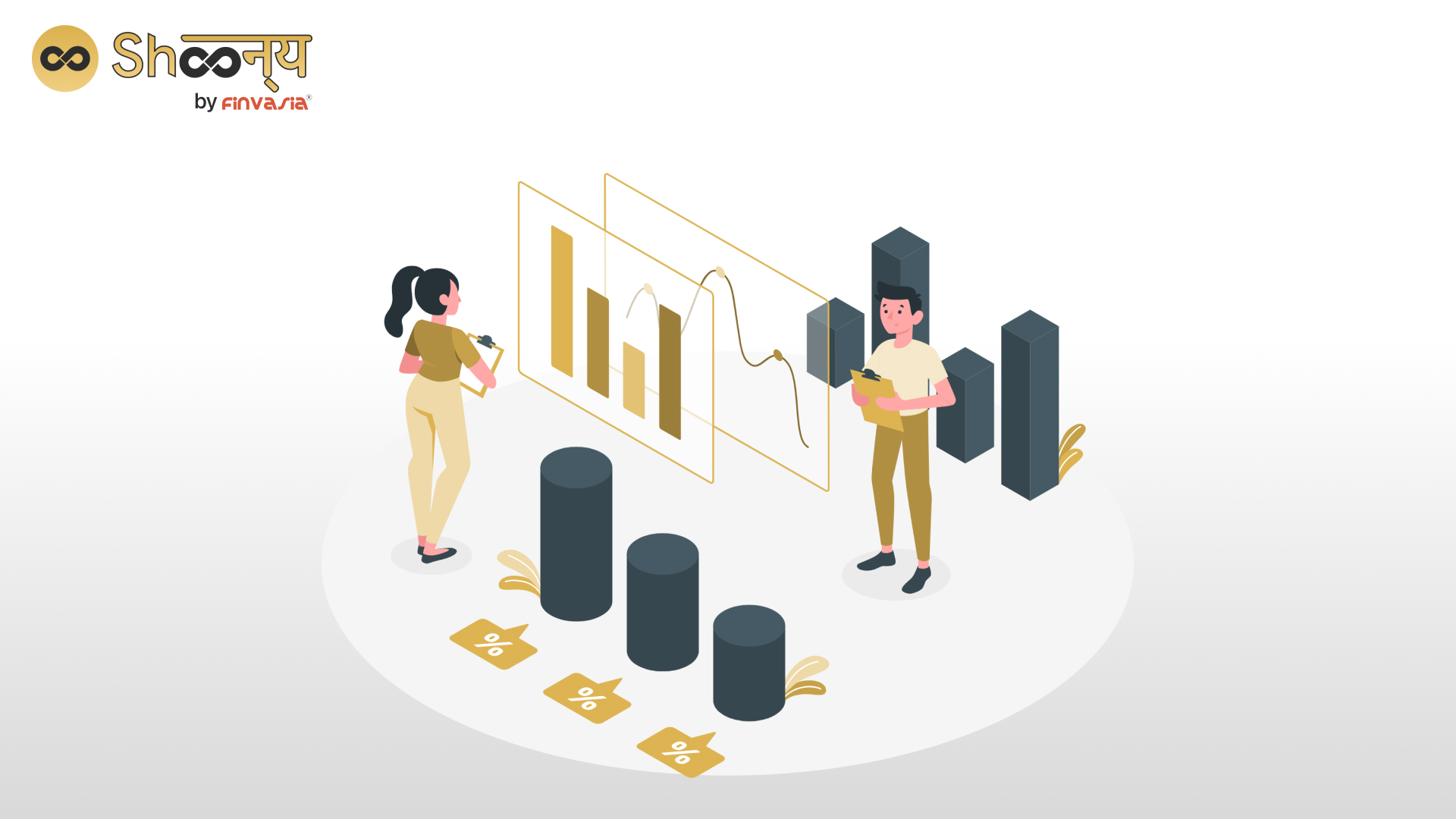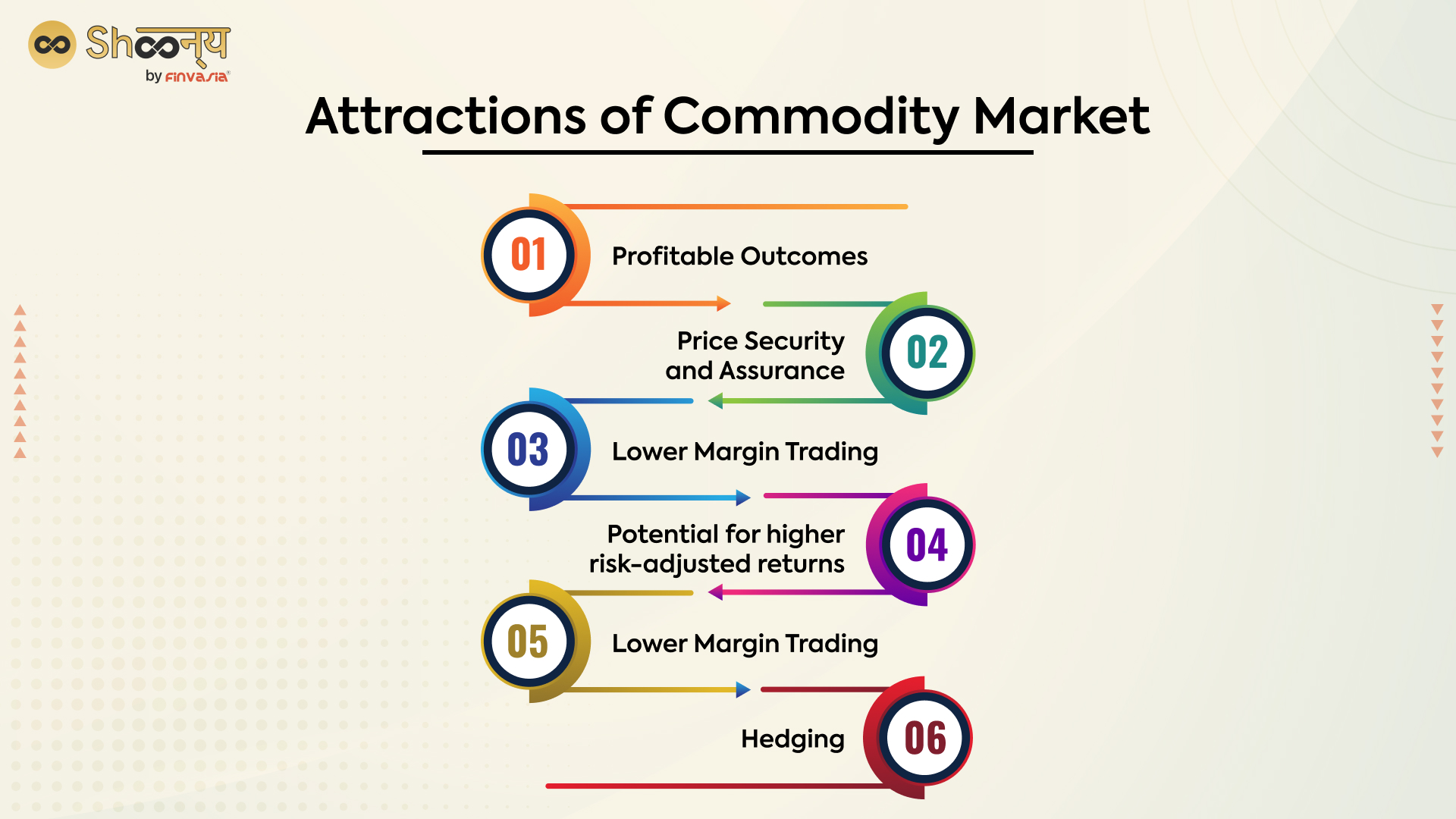Why Should I invest in Commodities?

Unexpected movements in the stock market may force investors to shift their focus to commodity trading. This article will assist you in comprehending why and how commodities can be included in portfolios. Though, Commodity Market investments are secure and provide a hedge against inflation.
- Profitable Outcomes
Since the liquidity is high, commodities are bound to be riskier investments. And we already know the rule: investments with high liquidity and risk offer a higher return. So is the case with commodities. If the company incurs a profit, it will also benefit the commodity trader.
- Price Security and Assurance
When the economy suffers from inflation, commodity prices often rise; hence, raw material prices are also expected to rise. As a result, investors who are willing to accept such a risk-benefit from the economical price growth, rise in commodity prices, and thus the security against such fluctuations.
Crude oil is an example of a volatile commodity, with prices varying due to supply changes, mining concerns, or socioeconomic aspects. Consequently, traders acquire such commodities to profit from price volatility.
- Lower Margin Trading
Commodity brokers demand a lower trading margin than stock and bond market transactions. For example, as a trader, you should deposit 5 to 10% of the total contract value as a margin with your broker.
As per the SEBI laws, hedgers and speculators are allowed to make a profit from transactions by trading on borrowed funds.
Similarly, commodity dealers who receive physical delivery can benefit from bulk orders with the possibility of eventual reimbursement; speculators can benefit.

- Potential for higher risk-adjusted returns
Though there has always been debate regarding the guaranteed high profits on trading with high risks, commodities are thought to be less expensive than equities investments. It needs a wise decision regarding price fluctuations and market uncertainty to decide on volatile commodities. And since commodities are a cheaper way to trade, commodity trading is preferred.
- Diversification
A well-diversified portfolio implies an effective asset allocation strategy. Commodities are essential components of a well-diversified investing strategy. Investing in India is frequently recommended if you have recently invested in stocks and bonds. Their risk-averse disposition works as a buffer against equity investment.
- Hedging
Commodities are volatile as compared to other investments. By including these varied asset types in their portfolios, investors hope to give varying degrees of downside protection and upside possibilities.
For example: Gold prices tend to rise quickly compared to other investments, allowing investors to benefit from an increase in real value. Furthermore, because the demand for commodities like gold, crude oil, etc., tends to rise or remain stable over time, the price graph for those items depicts long-term linear development, thus, eliminating any unsystematic fluctuations.
These technical analysis approaches demonstrate that commodities can be profitable investments.
Commodity Trading Overview
You must follow our beginner’s guide to commodity trading in India if you want to be productive. However, there is no doubt that commodities provide an effective hedge during periods of rising economic prices and are a better choice in terms of risk-return impact than equities.
If you wish to enjoy the benefits of zero-commission trading, open your account on Shoonya. It has a transparent policy to ensure a hassle-free investment experience on its multi-asset trading platform that too at lifetime zero brokerage.








